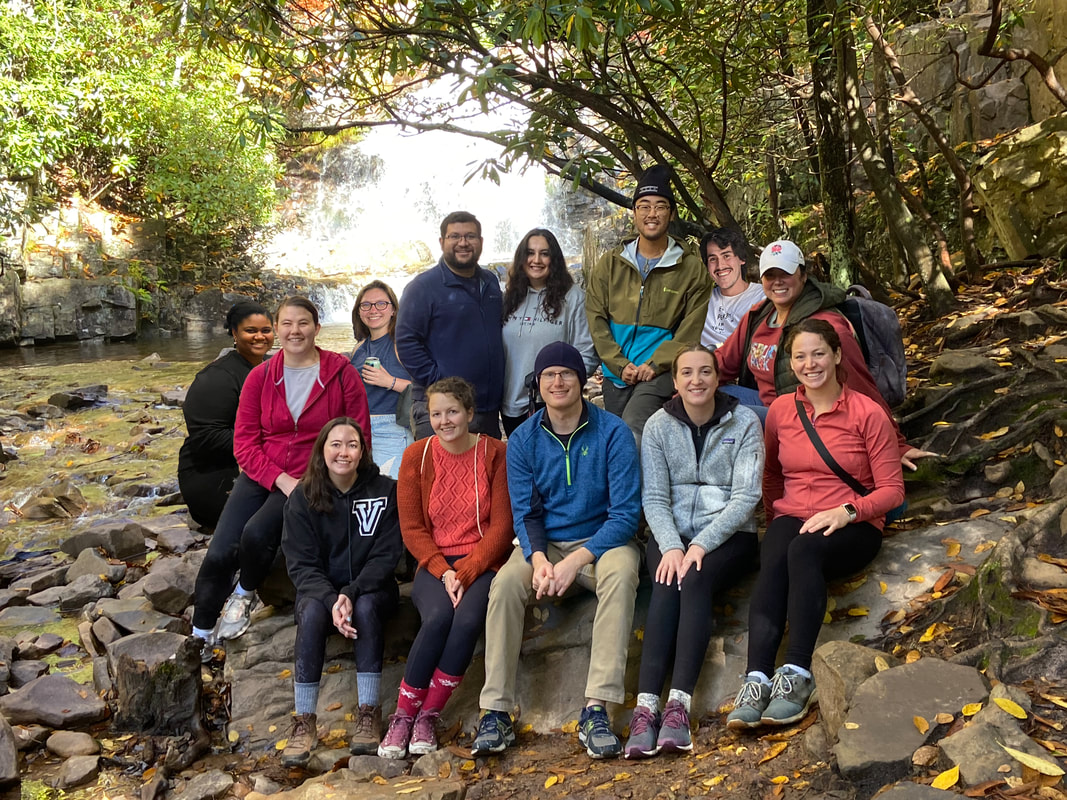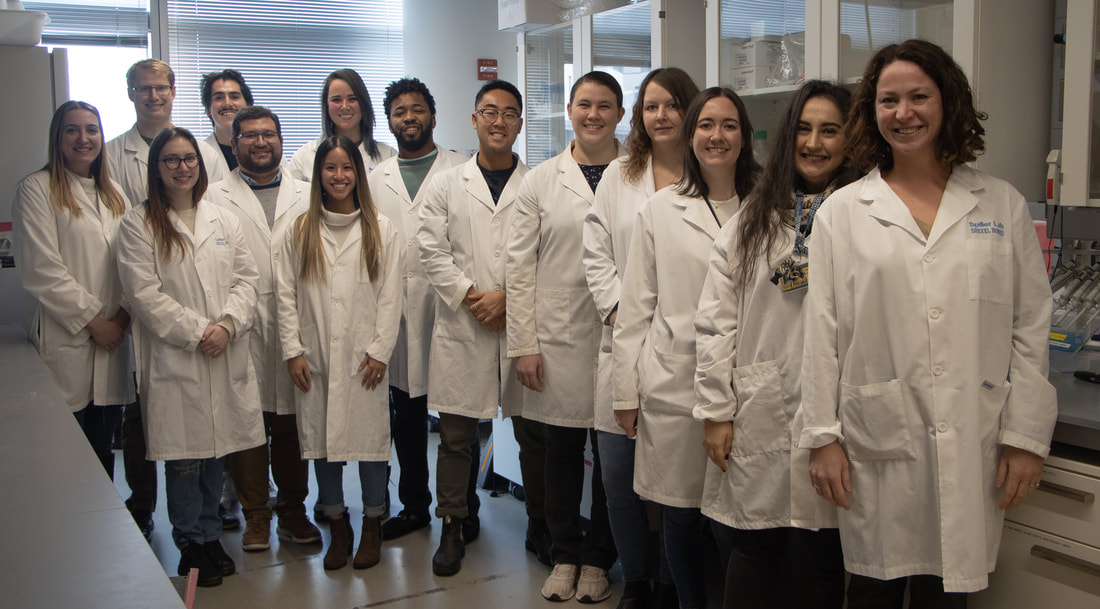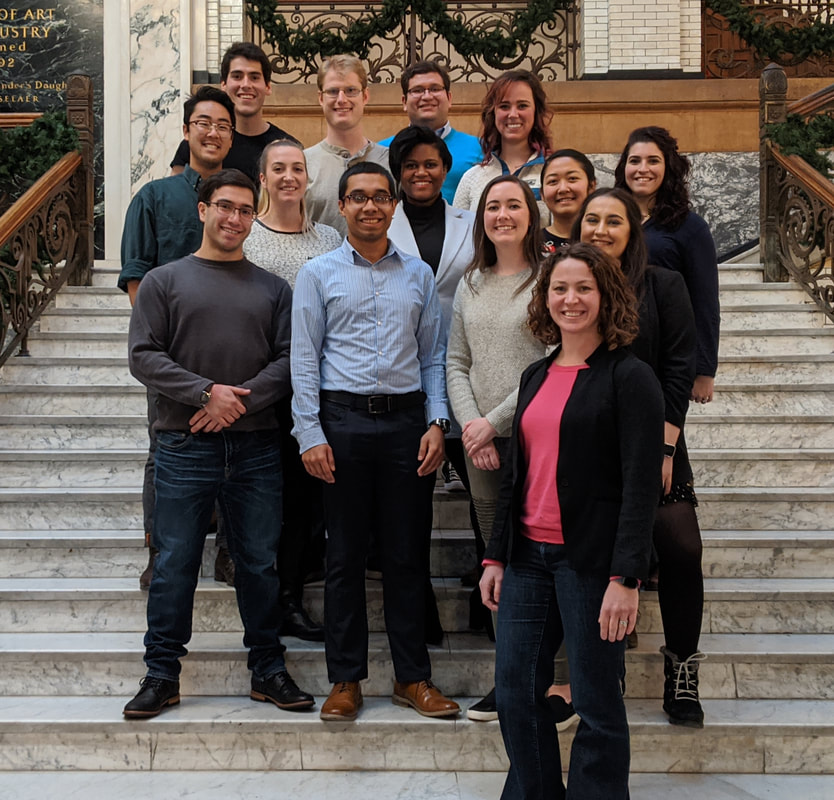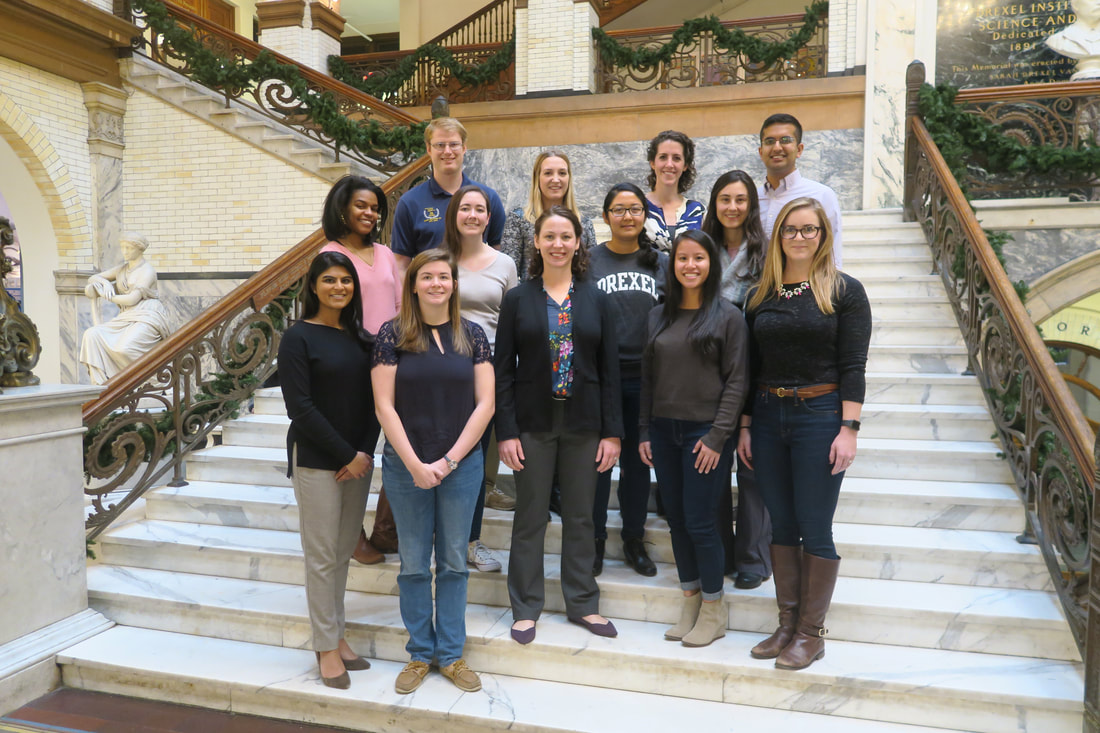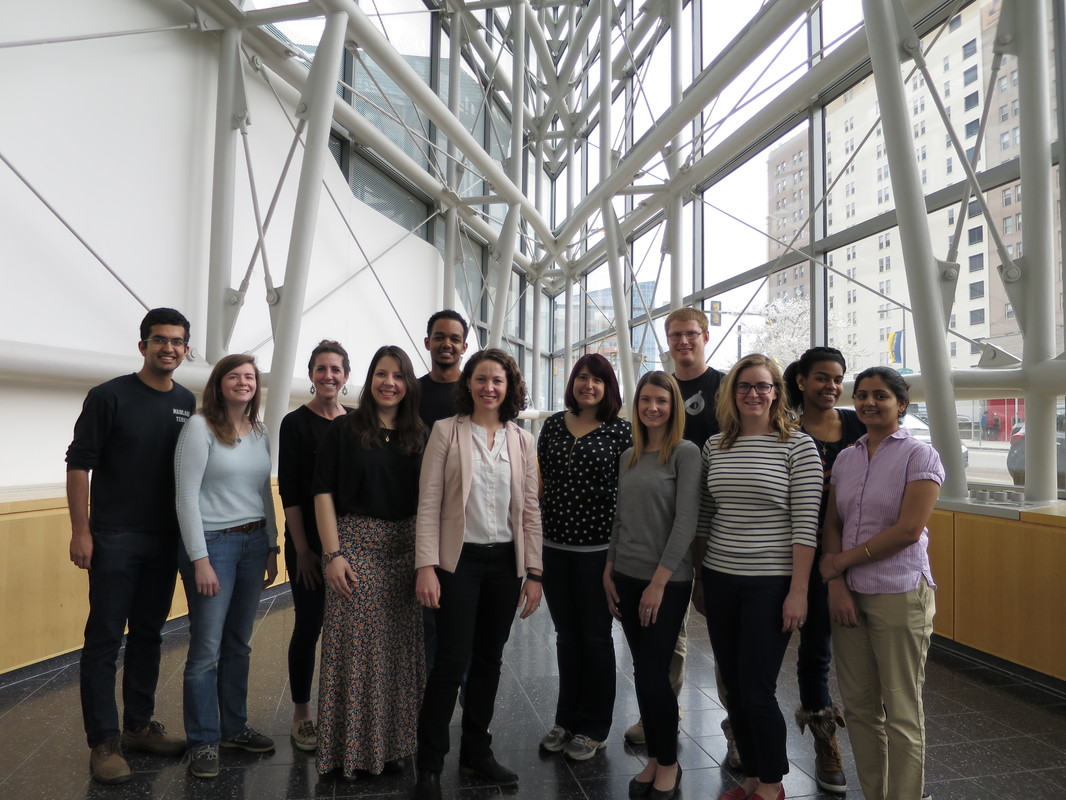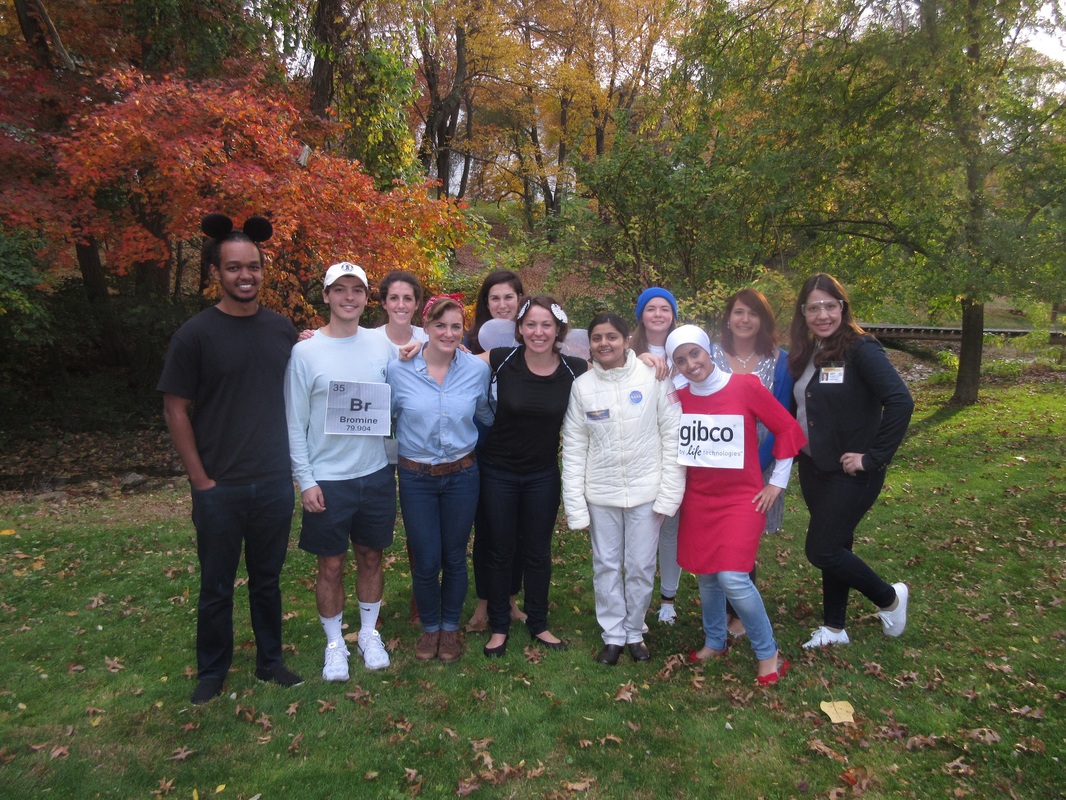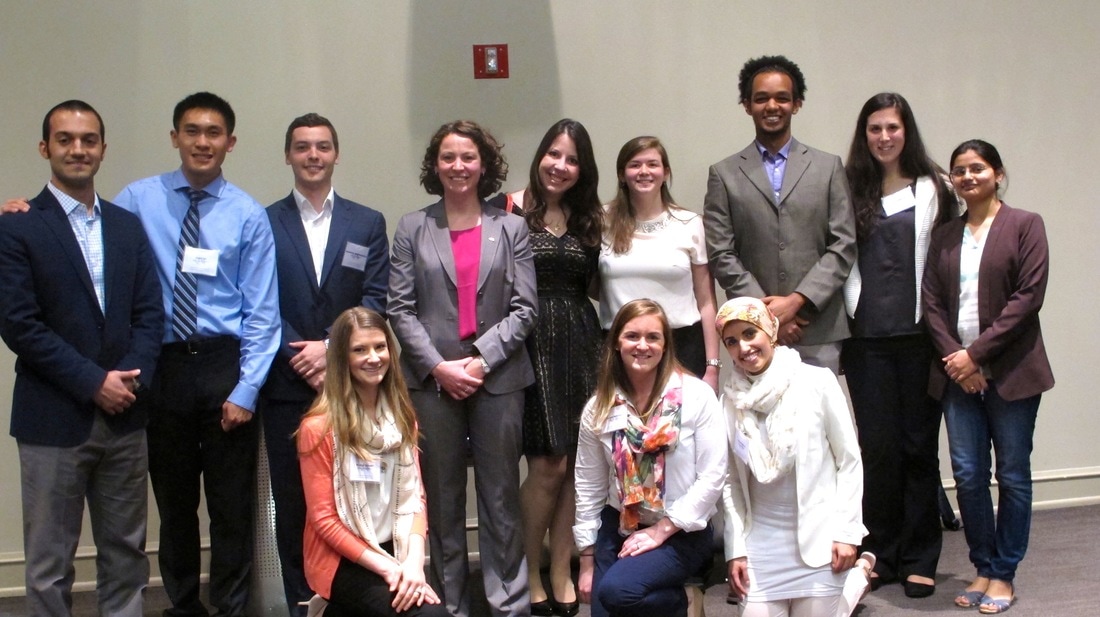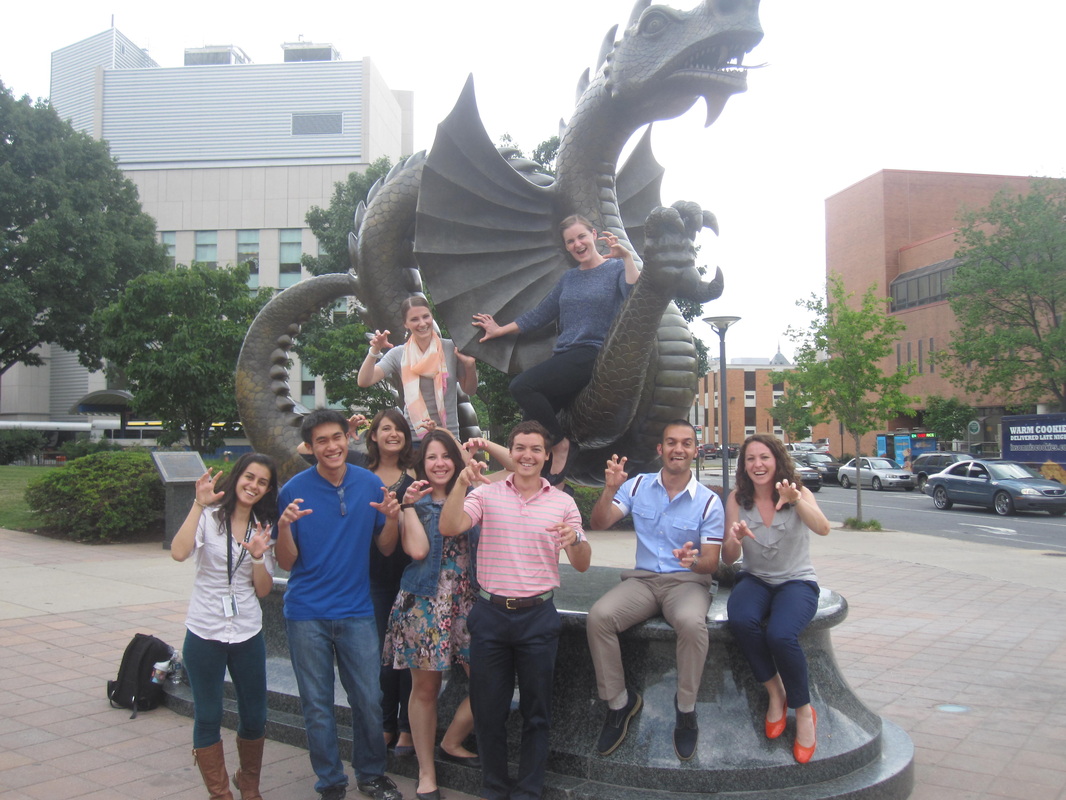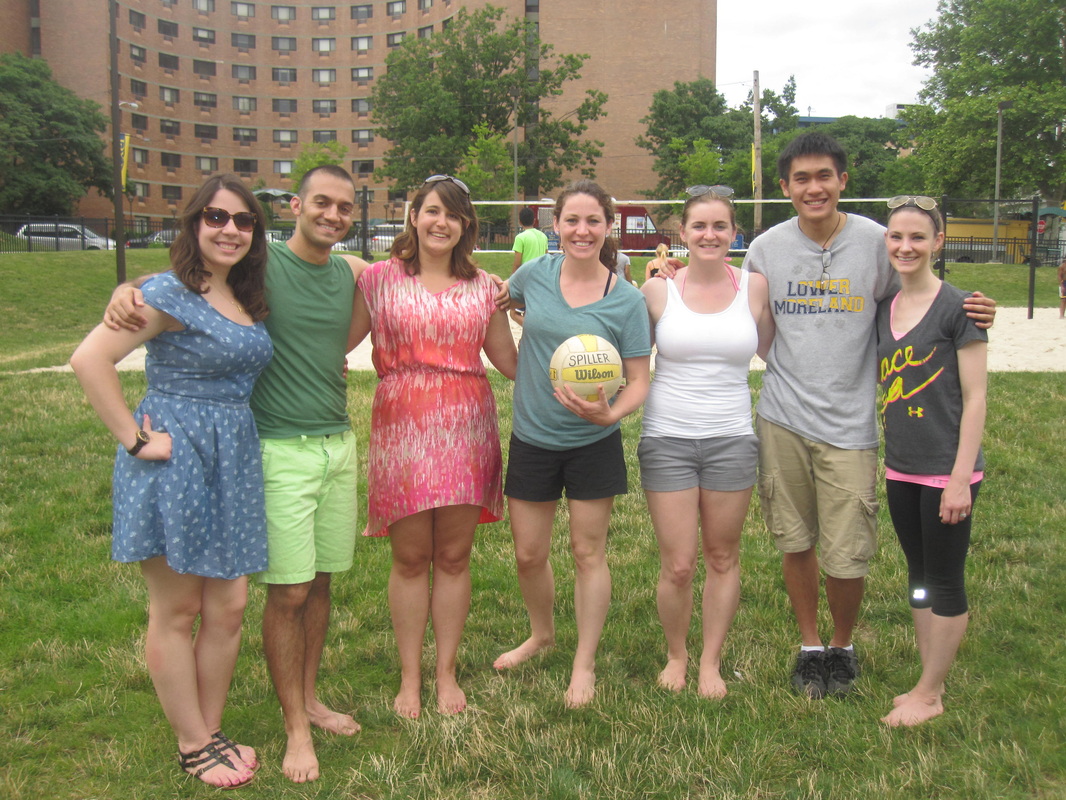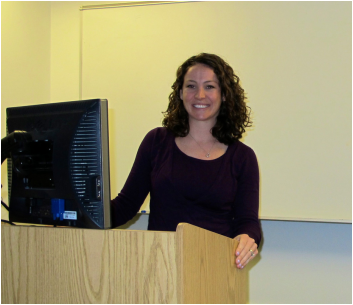
PI
Kara Spiller, PhD
Professor
School of Biomedical Engineering, Science, and Health Systems
Drexel University
Dr. Kara Spiller is a Professor in Drexel University's School of Biomedical Engineering, Science, and Health Systems. A member of the first class of Drexel's accelerated BS/PhD program, Dr. Spiller received bachelor's and master's degrees in biomedical engineering from Drexel University in 2007. As an NSF Graduate Research Fellow, she conducted her doctoral research in the design of semi-degradable hydrogels for the repair of articular cartilage in the Biomaterials and Drug Delivery Laboratory at Drexel (PI: A. Lowman) and in the Shanghai Key Tissue Engineering Laboratory of Shanghai Jiao Tong University (PI: W. Liu). After completing her PhD in 2010, she conducted research in the design of scaffolds for bone tissue engineering on a Fulbright fellowship in the Biomaterials, Biodegradables, and Biomimetics (the 3Bs) Research Group at the University of Minho in Guimaraes, Portugal (PI: R.L Reis). She then conducted postdoctoral studies towards the development of immunomodulatory biomaterials for bone regeneration in the Laboratory for Stem Cells and Tissue Engineering at Columbia University (PI: G. Vunjak-Novakovic), before returning to Drexel in 2013. Her research interests include cell-biomaterial interactions, the design of immunomodulatory biomaterials, and international engineering education.
Watch interview by Dr. Ira Pastor (March 9, 2022): www.youtube.com/watch?v=_meMItmbRXk
Watch talk about Seizing Opportunities and Building Bridges (April 17, 2017):
www.youtube.com/watch?v=lYNZh-ZhtoY&list=PLoGDQpXsUSATX1I9dnXoVqHbtErj8GwD2
Kara Spiller, PhD
Professor
School of Biomedical Engineering, Science, and Health Systems
Drexel University
Dr. Kara Spiller is a Professor in Drexel University's School of Biomedical Engineering, Science, and Health Systems. A member of the first class of Drexel's accelerated BS/PhD program, Dr. Spiller received bachelor's and master's degrees in biomedical engineering from Drexel University in 2007. As an NSF Graduate Research Fellow, she conducted her doctoral research in the design of semi-degradable hydrogels for the repair of articular cartilage in the Biomaterials and Drug Delivery Laboratory at Drexel (PI: A. Lowman) and in the Shanghai Key Tissue Engineering Laboratory of Shanghai Jiao Tong University (PI: W. Liu). After completing her PhD in 2010, she conducted research in the design of scaffolds for bone tissue engineering on a Fulbright fellowship in the Biomaterials, Biodegradables, and Biomimetics (the 3Bs) Research Group at the University of Minho in Guimaraes, Portugal (PI: R.L Reis). She then conducted postdoctoral studies towards the development of immunomodulatory biomaterials for bone regeneration in the Laboratory for Stem Cells and Tissue Engineering at Columbia University (PI: G. Vunjak-Novakovic), before returning to Drexel in 2013. Her research interests include cell-biomaterial interactions, the design of immunomodulatory biomaterials, and international engineering education.
Watch interview by Dr. Ira Pastor (March 9, 2022): www.youtube.com/watch?v=_meMItmbRXk
Watch talk about Seizing Opportunities and Building Bridges (April 17, 2017):
www.youtube.com/watch?v=lYNZh-ZhtoY&list=PLoGDQpXsUSATX1I9dnXoVqHbtErj8GwD2
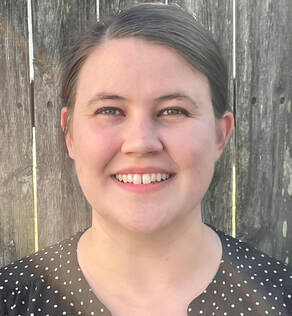
Lindsay Steele, PhD
Research Scientist
Lindsay obtained her PhD in Molecular and Cell Biology and Genetics from Drexel University College of Medicine in 2020. Her dissertation studies investigated the immunomodulatory properties of a mechanically dynamic material. It was her graduate research project that sparked her interest in macrophages and their role in the success or failure of engineered tissues. Since 2020 Lindsay has been investigating the macrophage response to tissue engineered cellular constructs. Lindsay’s research goals include discovering new ways to harness the immunomodulatory properties of cell-based therapies for regenerative medicine. She plans to pursue a career in research and development. Prior to Drexel, Lindsay obtained a bachelor's degree in Biology from Brown University where she worked as a research assistant in a molecular biology and biochemistry lab. In her spare time Lindsay enjoys chasing after her dog and attempting DIY projects.
Research Scientist
Lindsay obtained her PhD in Molecular and Cell Biology and Genetics from Drexel University College of Medicine in 2020. Her dissertation studies investigated the immunomodulatory properties of a mechanically dynamic material. It was her graduate research project that sparked her interest in macrophages and their role in the success or failure of engineered tissues. Since 2020 Lindsay has been investigating the macrophage response to tissue engineered cellular constructs. Lindsay’s research goals include discovering new ways to harness the immunomodulatory properties of cell-based therapies for regenerative medicine. She plans to pursue a career in research and development. Prior to Drexel, Lindsay obtained a bachelor's degree in Biology from Brown University where she worked as a research assistant in a molecular biology and biochemistry lab. In her spare time Lindsay enjoys chasing after her dog and attempting DIY projects.
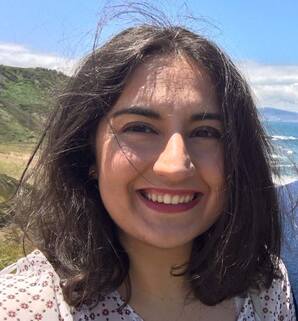
Beatriz Hernaez-Estrada, PhD
Research Scientist
Bea received her PhD in 2021 from the University of Basque Country (UPV/EHU) (Spain) in Research and Evaluation of Drugs, Application of Pharmaceutical Technologies to the Development of Advanced Therapies from the University of the Basque Country (UPV/EHU) (Spain). During the course of her PhD, she received a travel award to conduct a six-month research stay at the Biomaterials and Regenerative Medicine Lab, under Dr. Spiller’s supervision, and she never left!. Her current research focuses on analyzing the crosstalk between tissue engineered constructs and macrophages. Besides her work, Bea is an avid photographer, loves to travel to scenic places and to try a variety of cuisines.
Research Scientist
Bea received her PhD in 2021 from the University of Basque Country (UPV/EHU) (Spain) in Research and Evaluation of Drugs, Application of Pharmaceutical Technologies to the Development of Advanced Therapies from the University of the Basque Country (UPV/EHU) (Spain). During the course of her PhD, she received a travel award to conduct a six-month research stay at the Biomaterials and Regenerative Medicine Lab, under Dr. Spiller’s supervision, and she never left!. Her current research focuses on analyzing the crosstalk between tissue engineered constructs and macrophages. Besides her work, Bea is an avid photographer, loves to travel to scenic places and to try a variety of cuisines.
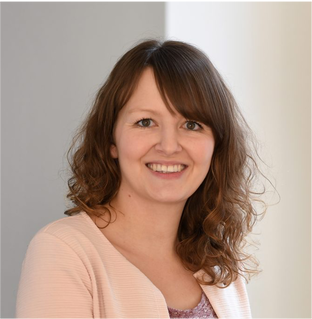
Tina Tylek, PhD
Research Scientist
Tina obtained her PhD 2020 from the University Wuerzburg, Germany, at the Department of Functional Materials in Medicine and Dentistry. During her dissertation she investigated the effects of biomaterial topographies on macrophage polarization in single and in co-culture with mesenchymal stromal cells. Her interest in macrophages and their importance in wound healing brought her to the Biomaterial and Regenerative Medicine Lab. For her current project, the design of macrophage cell therapy strategies by controlling the phenotype intracellularly, she received a postdoctoral fellowship from the German Research Foundation. In her free time, Tina enjoys cooking, baking, and discovering new places.
Research Scientist
Tina obtained her PhD 2020 from the University Wuerzburg, Germany, at the Department of Functional Materials in Medicine and Dentistry. During her dissertation she investigated the effects of biomaterial topographies on macrophage polarization in single and in co-culture with mesenchymal stromal cells. Her interest in macrophages and their importance in wound healing brought her to the Biomaterial and Regenerative Medicine Lab. For her current project, the design of macrophage cell therapy strategies by controlling the phenotype intracellularly, she received a postdoctoral fellowship from the German Research Foundation. In her free time, Tina enjoys cooking, baking, and discovering new places.
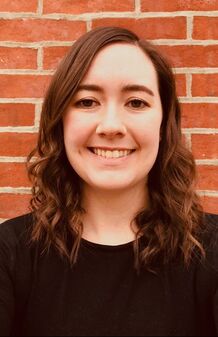
Erin O'Brien
PhD Candidate
While completing her undergraduate degree, Erin interned at GlaxoSmithKline, conducting pharmacokinetic studies of pre-clinical respiratory drugs. After receiving her BS/MS degree from Drexel in 2015, she spent two years at the Wistar Institute researching tumor immunotherapies. She returned to Drexel in 2017 to begin her thesis research, which is focused on designing an immunomodulatory biomaterial to promote vascularization. Erin hopes to continue researching immune-targeted medicine in her future career. In her free time, she enjoys fitness, solving and constructing crossword puzzles, and attending live music shows around Philadelphia.
PhD Candidate
While completing her undergraduate degree, Erin interned at GlaxoSmithKline, conducting pharmacokinetic studies of pre-clinical respiratory drugs. After receiving her BS/MS degree from Drexel in 2015, she spent two years at the Wistar Institute researching tumor immunotherapies. She returned to Drexel in 2017 to begin her thesis research, which is focused on designing an immunomodulatory biomaterial to promote vascularization. Erin hopes to continue researching immune-targeted medicine in her future career. In her free time, she enjoys fitness, solving and constructing crossword puzzles, and attending live music shows around Philadelphia.
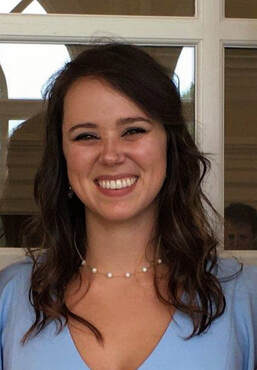
Victoria Nash
PhD Candidate
After completing her B.S. in Engineering Science and Biomedical Engineering Devices at Tufts University, Victoria worked for Moderna Therapeutics, a company specializing in novel mRNA therapeutics in Cambridge, MA. She returned to academia for a Master’s in Biomedical Engineering at Drexel University. During her master’s coursework, Victoria partook in a co-op at Spark Therapeutics, the first company to have an FDA approved gene therapy drug. She joined the Spiller lab when her co-op ended, and very quickly discovered she enjoyed research. She decided to stay on after completing her master’s to pursue her PhD in Biomedical Engineering. Her research focuses on leveraging a novel drug delivery system to modulate macrophage behavior to aid in wound repair. In her spare time, Victoria enjoys traveling, reading fantasy/sci-fi novels, yoga, and trying tasty food.
PhD Candidate
After completing her B.S. in Engineering Science and Biomedical Engineering Devices at Tufts University, Victoria worked for Moderna Therapeutics, a company specializing in novel mRNA therapeutics in Cambridge, MA. She returned to academia for a Master’s in Biomedical Engineering at Drexel University. During her master’s coursework, Victoria partook in a co-op at Spark Therapeutics, the first company to have an FDA approved gene therapy drug. She joined the Spiller lab when her co-op ended, and very quickly discovered she enjoyed research. She decided to stay on after completing her master’s to pursue her PhD in Biomedical Engineering. Her research focuses on leveraging a novel drug delivery system to modulate macrophage behavior to aid in wound repair. In her spare time, Victoria enjoys traveling, reading fantasy/sci-fi novels, yoga, and trying tasty food.
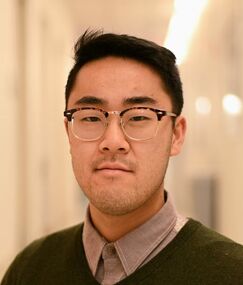
Sam Sung
PhD Student
Sam studied physics and chemistry at the Ohio State University where he analyzed the inorganic structures in dust particles using surface plasma polaritons. He then worked at the Naval Research Laboratory in Washington, DC to help engineer an optical tweezer/microfluidic system to separate and purify malarial-infected from healthy red blood cells. After realizing how little he knew about engineering patient-centric devices and treatments, Sam went to earn his MS at Northwestern University in biomedical engineering with a focus on medical devices and drug-delivery. He worked at a small startup in Chicago as an analytical chemist and engineered an anti-retroviral releasing implant as an option for HIV preexposure prophylaxis. His current research interests include biomaterial synthesis/manufacturing, spectroscopy, and wound healing. Outside of the lab, Sam can be found collecting rocks, photographing bugs, and drawing.
PhD Student
Sam studied physics and chemistry at the Ohio State University where he analyzed the inorganic structures in dust particles using surface plasma polaritons. He then worked at the Naval Research Laboratory in Washington, DC to help engineer an optical tweezer/microfluidic system to separate and purify malarial-infected from healthy red blood cells. After realizing how little he knew about engineering patient-centric devices and treatments, Sam went to earn his MS at Northwestern University in biomedical engineering with a focus on medical devices and drug-delivery. He worked at a small startup in Chicago as an analytical chemist and engineered an anti-retroviral releasing implant as an option for HIV preexposure prophylaxis. His current research interests include biomaterial synthesis/manufacturing, spectroscopy, and wound healing. Outside of the lab, Sam can be found collecting rocks, photographing bugs, and drawing.
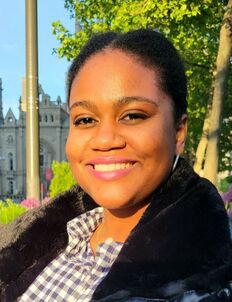
Lyssa Buissereth
PhD student
Lyssa graduated from Seton Hall University in 2017 with a Bachelors in Biochemistry. Intrigued by the multidisciplinary approaches the field of biomedical engineering uses to solve complex medical problems, she began her cross over journey in Biomedical Engineering at Drexel in 2019. After earning her Master’s in 2021, she completed an internship with Jannsen’s Clinical Pharmacology and Pharmacometrics branch. Now, Lyssa is pursuing her PhD in the Spiller lab studying macrophage metabolism with the purpose of designing new immunomodulating treatment solutions for chronic diabetic wounds. When she's not in the lab, some of Lyssa's favorite pastimes include reading, writing, watching horror movies, ballet and martial arts.
PhD student
Lyssa graduated from Seton Hall University in 2017 with a Bachelors in Biochemistry. Intrigued by the multidisciplinary approaches the field of biomedical engineering uses to solve complex medical problems, she began her cross over journey in Biomedical Engineering at Drexel in 2019. After earning her Master’s in 2021, she completed an internship with Jannsen’s Clinical Pharmacology and Pharmacometrics branch. Now, Lyssa is pursuing her PhD in the Spiller lab studying macrophage metabolism with the purpose of designing new immunomodulating treatment solutions for chronic diabetic wounds. When she's not in the lab, some of Lyssa's favorite pastimes include reading, writing, watching horror movies, ballet and martial arts.
LAb alumni
Jessica Eager, PhD
Gregory Risser, PhD
Olivia Ngo, PhD
Bhavani Singh, MS
Sarah Blatt, MS
Claire Witherel, PhD
Emily Lurier, PhD
Kathryn Wofford, PhD
Alicia Clark, MS
Pamela Graney, PhD
Amanda Pentecost, PhD
Carly Deusenbery, BS
Kieran O'Donnell, MS
Anamika Bajpai, PhD
Valerie Tutwiler, PhD
Nathan Tessema Ersumo, MS
Nicole Ferraro, MS
Donald Dalton, BS
Reham Garash, MS
Brandon Marcinkiewicz, MS
Tony Yu, MS
Chau Dang, BS
Sina Nassiri, MS
Gregory Risser, PhD
Olivia Ngo, PhD
Bhavani Singh, MS
Sarah Blatt, MS
Claire Witherel, PhD
Emily Lurier, PhD
Kathryn Wofford, PhD
Alicia Clark, MS
Pamela Graney, PhD
Amanda Pentecost, PhD
Carly Deusenbery, BS
Kieran O'Donnell, MS
Anamika Bajpai, PhD
Valerie Tutwiler, PhD
Nathan Tessema Ersumo, MS
Nicole Ferraro, MS
Donald Dalton, BS
Reham Garash, MS
Brandon Marcinkiewicz, MS
Tony Yu, MS
Chau Dang, BS
Sina Nassiri, MS
